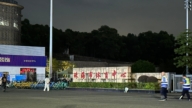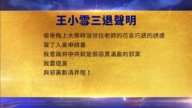【新唐人2013年11月25日讯】最近,大陆不动产统一登记制度成了各方议论的焦点,有专家分析,不动产统一登记制度一旦实施将会有效抑制房价;另有外媒认为,中共贪官会因不动产统一登记而惊慌恐惧;中共官媒则声称,制度出台将有利于征税和反腐。但人们坦言:对政府出台的任何所谓“良策”都已不抱期望。
据大陆官媒报导,中共当局在11月20号召开的国务院常务会议上宣布,将整合不动产登记职责,建立不动产统一登记制度。这项制度包括,由住建部、国土部、农业部、林业部、渔业、海洋部,分别将负责登记的土地、房屋、草原、林地、海域等不动产,全面划归“国土资源部”统一登记﹔建立所谓“不动产登记信息公开查询系统”,实现不动产审批、交易和登记信息在有关部门间互通共享等。新规很快引发了舆论讨论,并出现了“媒体热捧,民间遇冷”的局面。
尽管官媒和某些专家一再宣传不动产登记政策好处多多,不但可以调控房价,又能成为反腐利器,还有助于未来房地产税、遗产税的全面征收等,但网民的反应却狠狠的泼了当局一头冷水。民众认为,中共空谈误国、作秀、雷声大雨点小、骗人的把戏等。
大部分的观点认为,新政在权贵既得利益集团阻挠下,或是不了了之,百姓空欢喜一场,或是用一个拖字诀,给贪官们足够的时间把财产“漂白”,或是采取各种规避对策,但绝不可能对自己下手。
美国南卡罗莱纳大学艾肯商学院教授谢田:“我们也知道,中共官员向来上有政策,下有对策,可以有至高无上的权力,高于法律的权力,同时总是有办法作些手脚,想办法来欺骗、来蒙哄过关。所以如果中共专制的问题不解决的话,这个东西是肯定根本上没办法真正实行下去的。”
其实早在2007年《物权法》出台时就明确提出了不动产实行统一登记制度,但六年过去,这一政策由于实际推进中受到多个部门和利益集团的重重阻挠,加上地方政府的不配合,使得这项工作不得不中途夭折。
谢田:“我觉得这个(政策)基本上可以确定中共不敢做,也做不到的,中共官员现在是无官不贪,就是所有人都贪。一旦公布的话,大量官员这些罪行曝光的话,可能马上就动摇中共的统治。”
北京《环球时报》转述意大利ilterziario网站文章——《中国的全国不动产登记制度将吓坏贪官》。文中指出,大陆许多贪腐现象,都与价格过高且藏污纳垢的房地产市场密切相关,但由于旧不动产登记系统的各自为政,使得当局对非法持有多套房产的官员束手无策。
文章认为,新不动产登记体制的实施,将会令通过房地产圈钱和“洗钱”的中共贪官们无处遁形,惊慌失措。而网民们却指出,外媒太低估了中共制度的漏洞了,这些将权术玩到极致的中共贪官们,不但不会被“吓坏”,反而有可能钻新规漏洞,为自身牟利。
谢田:“像任何正常社会的很多很多事情一样,一旦中共开始实施的话,它就变了形,走了样了,所谓‘实施’的话呢,我们也可以想像到,它不会达到正宗的目地。”
一些民众则认为,不动产登记制度的本身,就是为了全面开征房地产税而制定的,目地还是为了盘剥百姓。
谢田:“如果税率很高的话,实际上对老百姓,即使他拥有一套房子的话,也会造成很大的冲击。那些没有拥有房子的老百姓,假如租房子在住,房东一定会把税这部分成本转嫁到租金上面,0644这对他们可能也是一个很大的或者难以承担的负担。”
据报导,不动产政策虽然已经明确,但具体落地仍需时日,不动产统一登记工作的具体时间表问题,目前也还没有准确消息,网民讽刺,希望有生之年能够看到政策实施。
采访编辑/张天宇 后制/葛雷
Could Unified Real Estate Registration Become A Nightmare?
China has recently created a
unified real estate registration system.
Analysts believe that this policy
will effectively curb property prices.
International media suggest this system
will make corrupt officials cautious.
Chinese state-controlled media report that the
registry will lead to tax levies, and fight corruption.
There are others who say that they don’t hold
out much hope towards the regimes policy.
State-controlled media reported on a unified real
estate registration system that was decided at an
executive meeting of the State Council on November 20.
Property, such as land, housing, grasslands,
woodlands, and water bodies, were formerly
under various government agencies.
These agencies included Housing, Land,
Agriculture, Forestry, Fisheries, and Oceans.
Property will now be registered and supervised
by the Ministry of Land and Resources.
There will be a public inquiry system, in which
real estate approval, transactions and registration
information can be shared by different agencies.
Following the release of this news,
there has been a lot of discussion.
Opposing opinions could be seen in a comparison
between Chinese state media and internet users.
State media and some experts praised the plan.
It was said that it will control market prices,
fight corruption, and lead to future tax levies.
Internet users had a different voice.
They criticized the Communist regime, feeling
that it is just more empty talk to decieve people.
They said that the new leadership will do nothing in the end,
due to opposition from powerful groups with vested interests.
People will get nothing out of the new policy, but corrupt
officials will have plenty of time to escape from the policy.
Xie Tian, professor of School of Business, University
of South Carolina Aiken: “We have known that the
regime’s officials are capable of dealing with any policy.
This is because of their power that is
above the law, and their deceptive tactics.
Without resolving the problem of dictatorship,
there can be no way to implement any policy."
Property Law became effective in 2007.
It clearly stated a unified registration system for property.
This has never been implemented during the past six years.
There is resistance and rejection from various agencies,
groups with vested interests, and local governments.
Xie Tian: “I think this policy basically confirms that
the Communist regime dare not and cannot do it.
Almost every Communist official is corrupt.
The public exposure of the officials’
property will expose their crimes.
It could immediately shake the
ruling of the Communist regime."
State-controlled media ‘Global Times’, quoted an
article from Italy’s ‘Il Terziario’, entitled “China’s National
Property Registration to Spook Corrupt Officials."
The article argued that the Communist regime has
lost its control in overpriced and murky real estate.
The fragmented registration agencies face
strong resistance from government officials.
The article stated that the new policy is expected
to create great consternation among corrupt officials.
However, internet users indicate that the foreign media
has underestimated the loopholes in the Communist system.
Corrupt officials are very skillful.
They will not be frightened, and they will find
new loopholes to be able to collect their wealth.
”
Xie Tian: “Many things that seem ordinary in a normal
society will get distorted in the Communist regime.
It’s foreseeable that the implementation
of this policy will not reach its actual goal."
Some people suspect the real estate registration system
is to develop a comprehensive real estate tax levy.
The end purpose is to exploit the people.
Xie Tian: “If the tax rates are high, it will have a big impact,
even upon ordinary people who have just one house.
Those who do not own a house will pay higher
rent, transferred to them by their landlords rates.
In this case, it is also a burden."
According to reports, the effective date
for the policy is yet to be determined.
There is also lack of clarity about
the timetable for unified registration.
A satirical comment from an internet user says that they
hope the policy will be implemented while they are still alive.
Interview & Edit/ZhangTianyu Post-Production/GeLei




























